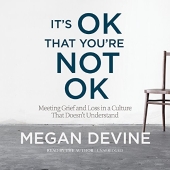

Phil Stevens wrote:Your photos of the garden position sun path taken in early October will also work for early March, which might be useful in terms of prep and early planting with cloches, etc. You've obviously put some thought into this.

Kevin Olson wrote:Another tactic of mine is (as was mentioned up thread) to have a cup of coffee (or tea, if you prefer - pick your poison!). I mostly drink coffee, though I have been drinking green tea most every day for the EGCG, which is supposed to help with autophagy; I dunno if it works, but that's the rumor. Since people in Asia have drinking it since time out of mind, I doubt it will hurt me, in any case.
To this, add a generous dollop of heavy whipping cream. Don't be shy about it.
The heavy cream provides some good fats, with a bit of metabolic staying power, but without much impact on blood sugar, and the little bump of caffeine is a pick-me-up and mental re-focusser (at least for me, your mileage may indeed vary). I don't imagine there's much caffeine in the coffee I usually drink; it's arabica, and dark roasted, both of which tend to be lower in caffeine. Empirically, I know that other coffee offers more of a jolt - I had some old Cafe Bustelo around, made myself a cup a few weeks ago, and felt pretty jittery afterwards.
Anyway, adding some heavy cream to coffee is another of my go-tos, now so ingrained by force of habit that I hardly think about it. I used to only drink my coffee black, but found that having a cup or two with heavy cream in the AM helped me to make it without snacking until lunch time. Now, I just do it habitually. I buy heavy cream by the quart, which lasts me for a couple of weeks, or a bit less. The fat calories also help me to maintain body weight while on my particular brand of low-carb diet, which can be a challenge.


Derek Thille wrote: ...This thread also brings to mind to me the 8 forms of capital. Social capital, or community, can help us get through life events like this. Spiritual capital is also very important dealing with things like loss.
Mark Reed wrote:.....The colors in the water and sky were interesting and I liked the little bit of greenery in the foreground. I don't know what the little rectangular thing was, a signature maybe?
Jill Dyer wrote:I'm not a big tea drinker, so only experience is green tea, or jasmine tea, any of the "black" teas have to be extremely weak and all of them are taken without milk. Not being a purist, I'm more than happy to share a teabag (I can see people being horrified.) I've noticed that a lot of teas do not have an origin specified, so no idea of their source.
greg mosser wrote:I’m a tea fan (and a grower/producer).
.......
i’m kind of just starting to get deeper into the world of tea processing…it’s kinda magic. the tea leaves themselves drive all kinds of different enzymatic processes that affect flavor in response to various stimuli…that people have figured out all the different ways to manipulate the processes for different flavor/mouthfeel/etc is fascinating to me.

Josh Hoffman wrote:Home made popcorn!
.....
I have a friend who doesn't use any oil/grease/butter. Air popped and he adds toppings. I don't really trust him because of this but I now know it can be done.